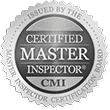Ten Important Questions to Ask Your Florida Home Inspector
When you purchase a home in the Sunshine State, it helps to do your homework. First, you shouldn’t buy any property without exploring its potential problems. Obtaining a certified home inspection from a professional who is licensed to practice in Florida will help prospective buyers to better understand any work that a home might require in the near future.
Understanding these anticipated costs may, in rare cases, change their purchasing decision. Such projected expenses may be a negotiating point that buyers can use as leverage. Buyers may wish to negotiate a lower selling price or get the sellers to pay for some closing costs.
Ultimately, knowing a property’s condition protects buyers by making sure you understand the investment you’re about to make.
1. What kind of inspection do you need in Florida?
Many prospective buyers seek an inspector who performs a “Four Point Inspection,” which includes a review of the heating, ventilation, and air conditioning (HVAC) systems, the electrical panels and wiring, the plumbing fixtures and connections, and the roof. Expect a report that only covers these four areas, while not addressing other aspects of the property. This is not recommended in place of a full home inspection. These inspections generally are for insurance purposes when the home is 25 years or older.
2. Do you need more than a 4-point inspection?
If you will make a large investment in a home and plan to occupy it within the foreseeable future, you need something more. However, there could be many potential issues in a home to be discovered inside and outside of the structure. This inspection type is recommended for insurance only.
3. Do you need information on Wind Mitigation in the inspector’s report?
Some property inspectors specialize in Wind Mitigation Reports. They help consumers understand how a structure’s roof might perform (in its present state) during hurricane-force winds. Some buyers obtain two home inspections, one from a 4-point inspector and one from a wind mitigation expert. This the only inspection that can reduce your home owners insurance. Generally a good idea when a newer roof has been installed.
4. How long will the inspection process take?
A typical inspection lasts 2 to 3 hours. While you’re encouraged to be at the inspection and ask questions, you also want to give the inspector an opportunity to focus on the home and their findings!
5. When will you get the report?
Some home inspectors use modern reporting technology and deliver the report within 24 hours and in some cases shortly after the inspection. A good inspector will also walk through a summary of the findings with you after the inspection.
Digital reports with lots of photos are a plus!
6. What is Errors and Omissions Insurance?
Inspectors use this kind of professional liability coverage to insure professional mistakes they might make on the job. They don’t want to be sued for omitting important facts from their report. Buyers and sellers could bring false claims against them or assert that they should have discovered a property’s specific issue. Most home inspectors do not carry this due to the cost. Inside & Out Property Inspectors carries 1 million in coverage.
7. Should you get more than one inspection?
If you only need a certificate to give your property insurance company, then a 4-point inspection might suffice. If you want to live in the home without making too many repairs after taking residence, you will want to understand the structure’s integrity. You will want to locate common problems like termites, mold, and Chinese drywall.
8. Should you let the same inspector fix the home’s problems?
In Florida, it is illegal (and a huge conflict of interest) for home inspectors to call out issues on your home and also remedy them. The only exception is WDO (Wood Destroying Organisms) Inspections & Remediation. Some inspectors also have Pest Control businesses. Beware of home inspectors that say they can do repairs.
9. Can you take the property inspector’s word for it?
The inspector has no emotional investment in the inspection process. He or she will give you the straight facts about the home’s condition. You decide how much action (or reaction) to take in response to the expert’s report. Your inspector should have the communication skills to talk you through various findings.
10. What if there are lots of recommendations or defects?
It’s a home inspectors job to point out maintenance items, regular defects and safety hazards. Every home has common issues, so just because a home has a lot of items on the home inspection report doesn’t mean it’s a money pit!
Work with your agent to determine what are priority items that would impact your quality of life. The reality is most homes are safe and ok to live in. Each one will have varying levels of TLC that need to be put in it. Remember, buying a house includes routine maintenance that comes with the responsibility of being a home owner!





